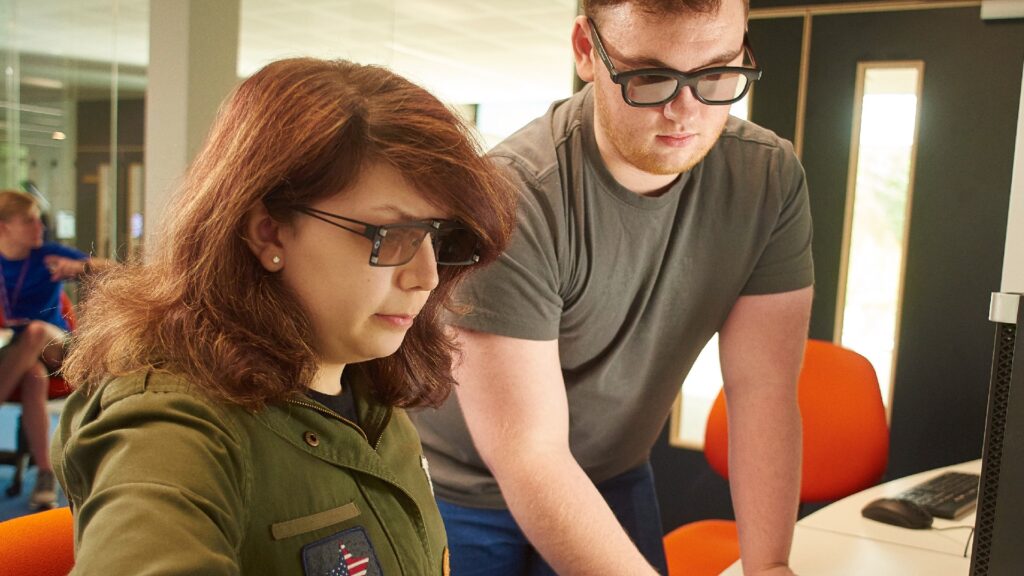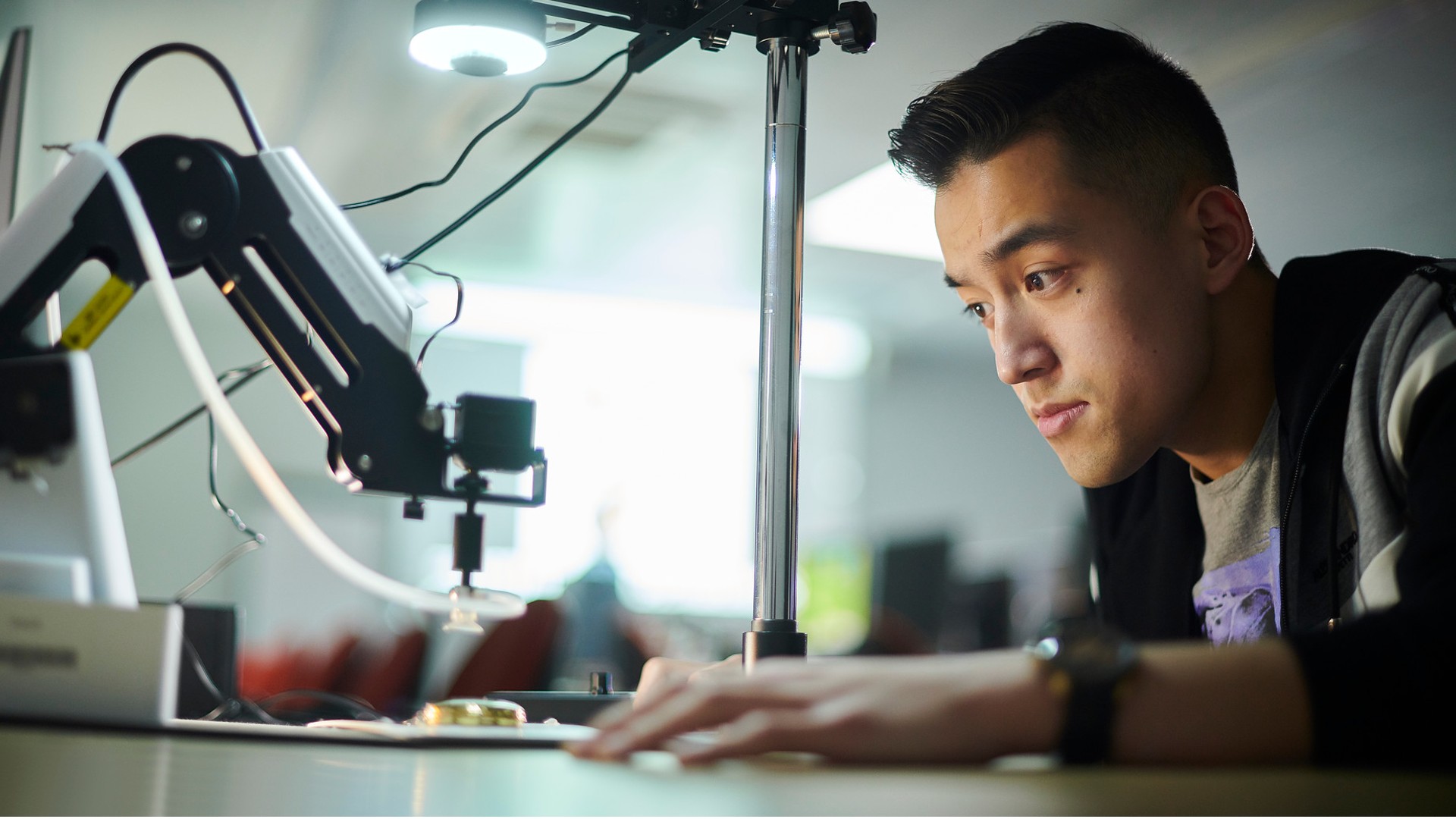Computer Science and Informatics – Graduate Teaching Assistant (GTA) PhD Studentship
An opportunity for fully funded PhD studentships (as Graduate Teaching Assistant), within the Department of Computer Science, at Edge Hill University.



Research in the Department of Computer Science is organised around several broad themes promoted and supported by the Department’s Centres for Data and Complex Systems and Intelligent Visual Computing. While the majority of the work falls under the data analytics and computer vision and visualisation themes, other contributions focus on disruptive technologies and infrastructure. Research in the areas of robotics, visual computing, virtual and augmented reality, all are supported by our state-of-the-art, high-end research facilities. Our close links with local, national and international organisations allow us to work on real word challenges. We are committed to interdisciplinary work which is achieved by being part of an interdisciplinary research centre for Data Science and also working with two research institutes in the University. We have been successful in attracting funding from major national and international funding bodies. We have a well-established, growing postgraduate and postdoctoral research community supported by in house and external training and personal development opportunities.
The University particularly welcomes applications for studentships in the project areas outlined below with additional research information on the research area web pages. All PGRs will be supported by a supervisory team with appropriate expertise. Also, see the University’s research repository research repository for further information on the research outputs of each member of staff.
All postgraduate researchers are registered in the University’s Graduate School and housed in the faculty or department that is most appropriate for the project on which they are working. PGRs working on computer science and informatics projects are normally housed in the Department of Computer Science.
In the first instance please direct all enquiries about proposed projects on topics related to Computer Science and Informatics to the Graduate School ([email protected]) with Professor Ella Pereira, Graduate School Research Degree Coordinator for computer science and informatics, cc’d ([email protected]).
Research themes
Data analytics
- Machine Learning – deep learning, real-time machine learning, resource-efficient machine learning, classification, regression, prediction
- Big data analytics – decentralised/distributed data analytics, classification imbalance, feature design and analysis, industry 4.0 analytics
- Data mining – pattern recognition & semantic analysis
- Natural Language Processing – text mining, natural language understanding, social media mining, relation extraction, inference, sentiment analysis, emotion detection.
- Generative Language Models – Large Language Models, fine-tuning, domain and task adaptation, smart chat bots.
Visual computing and visualisation
- 3D Computer Vision – camera calibration, reconstruction, structure from motion, registration, integration and modelling, saliency analysis, segmentation, feature extraction and measurement, model retrieval, and visualization.
- Visual AI – noise removal and image enhancement, image and video analysis, semantic segmentation, object detection and classification, action, activity and behaviour recognition, fine-grained visual classification, digital pathology, medical imaging, microscopic image analysis and recognition, and early detection and diagnosis of cancer.
- Medical Image/Video Analysis, AI in Digital Histopathology Image Analysis.
- Robotics, Autonomous and Intelligent Systems – multimodal AI, human-machine/vehicle/robot interaction, wearable computing, social robotics, intelligent autonomous vehicles, real-time traffic analysis, and factory automation.
- Remote Sensing and Intelligent Surveillance – drone AI, land surveying, land use segmentation and classification, crop monitoring and management, emergency planning and coastal management, building/structures inspections, and greenspace and greenhouse management.
- Computer Graphics, Games and Visualisation – saliency analysis, best view selection, molecule visualization, AR/VR/XR, data visualization, and digital twins.
Disruptive technologies and infrastructure
- Autonomous systems, robotics and systems automation, cloud computing, wireless communications, telecommunications
- IoT enabled smart systems, applied machine/deep learning, intelligent transport, digital healthcare, agriculture and industry 4.0
- Robotics Systems – legged robots, manipulators, wheeled robots, and soft robots
- 3D Modelling – open-source 3D printing to support robot structure development.
Security
- Security and privacy problems in health care management
- Blockchain based security and privacy enhancing technologies and applications
- Security and privacy by design (including automated verification methods of security systems)
- Security and privacy problems of internet of things applications
- Security and privacy problems of biometrics systems and applications.
Interdisciplinary STEM projects
- Medical informatics, medical imaging, health and social care, bio-inspiring computing algorithms for optimised decision-making, plant phenotyping, plant diseases
- 3D printing, additive manufacturing, factory automation, quality assurance, digital preservation, remote tourism, etc.
- Machine learning/deep learning methods for dyslexia/autism detection.
- Data Analytics for the Crowd: Modelling collective behaviour.